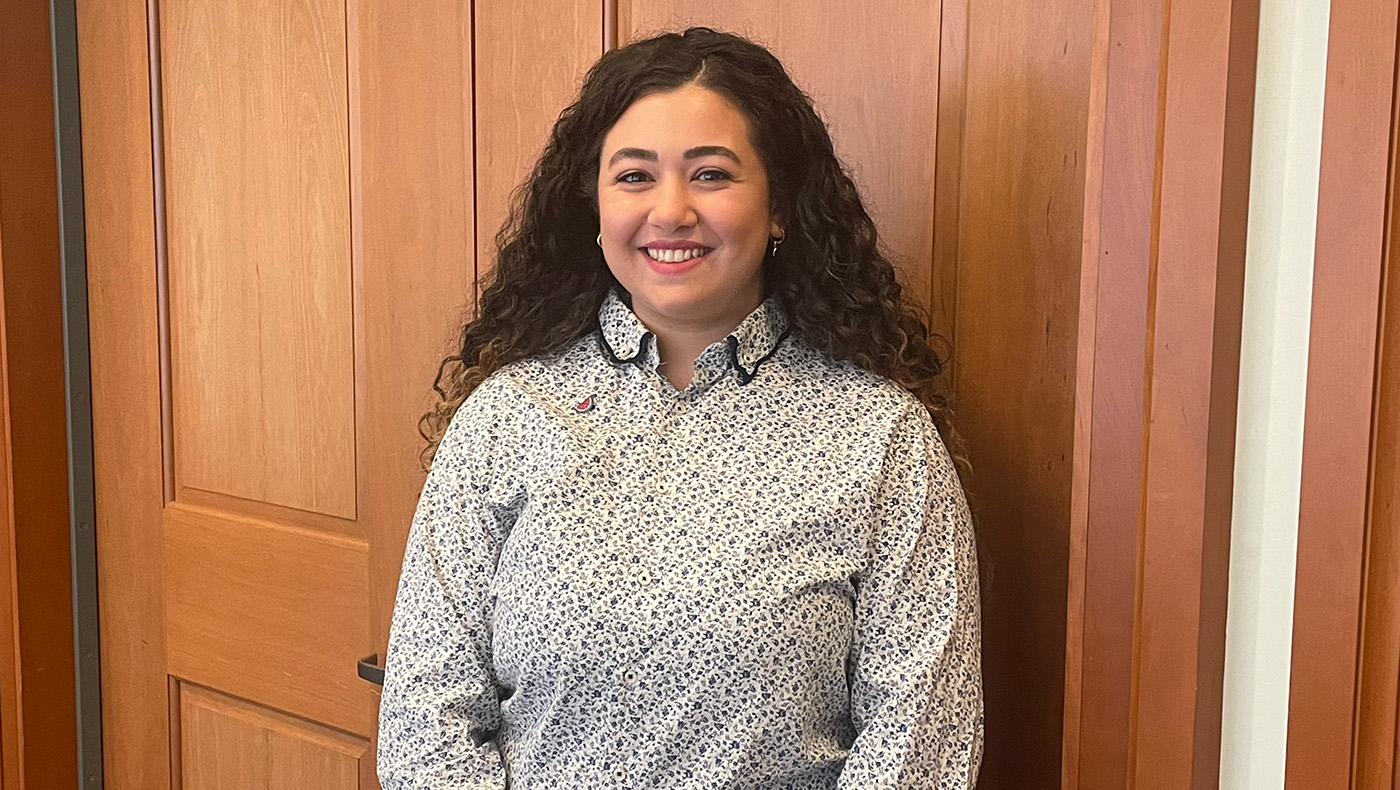Malek Elsayyid is pursuing her Ph.D. and MBA with a graduate certificate in generative AI and is expected to graduate in 2025. She is the first student to complete Lerner’s Generative AI for Business graduate certificate. Malek shares why she chose to continue her studies at Lerner, an important connection she has made through the program, and how she balances her career with her studies.
Lerner: Why did you go back to pursue your graduate degree? Why did you choose the Lerner College for your studies?
Elsayyid: I was unsure what career to pursue after earning my bachelor’s degree in biochemistry and originally wanted to be a professor. After learning that UD offered a dual degree for the Biology Ph.D. and MBA, I became interested in how I could apply my science expertise to potential entrepreneurship opportunities. It is unfortunate that UD is getting rid of the paid dual degree that attracted me to UD in the first place.
Lerner: What did you learn through this opportunity that you wouldn’t have learned anywhere else?
Elsayyid: I believe these classes allowed me to learn the impact of AI pretty early on and be able to see the future of generative AI. I would not have learned how to properly engineer a prompt to yield my desired output efficiently without the Intro to AI class.
Lerner: Please share an example of a course or concept that you were able to apply directly to your life and/or career.
Elsayyid: I have been able to use AI in my research. Taking these classes inspired me to seek out new AI tools that I have since been able to use in my confocal image analysis work, allowing me to more accurately identify and quantify biological structures.
Lerner: Describe an important connection you have made through your graduate program (personal, professional, peers, mentors, professors, etc.)
Elsayyid: Professor Harry Wang was instrumental in introducing me to generative AI and all the possibilities that are out there. He was very engaging and flexible to his students’ interests and allowing that to guide the course.
Lerner: If you were to describe your classmates in one word, what would that be and why?
Elsayyid: I would describe my classmates as determined. They each had strong ideas and approaches to problem-solving, which led to lively discussions and diverse perspectives in group projects. Working in this environment helped me refine my ability to navigate different viewpoints, stay adaptable, and effectively communicate my ideas.
Lerner: How do you balance your career with your studies?
Elsayyid: Balancing my career with my studies has been challenging, but I manage by staying organized and setting clear priorities. I rely on task lists to track deadlines, regularly discuss my workload with friends and colleagues for perspective and assess whether I’m taking on too much. Most importantly, I’ve always prioritized my studies and ensured that my work commitments aligned with that focus. This approach has helped me stay on track while maintaining a manageable workload.
Lerner: Fill in this sentence: “My graduate program helped me become…”
Elsayyid: A more versatile and interdisciplinary thinker, equipping me with a broad skill set that makes me more marketable across multiple fields.
Lerner: What was the most impactful hands-on project or case competition that you were able to participate in?
Elsayyid: The most impactful hands-on project I participated in was using AI to write and produce an original song in a matter of minutes. The speed and creativity of the process completely changed my perception of AI’s capabilities, showing me how far the technology has advanced. It was a fascinating demonstration of how AI can enhance creativity and streamline complex tasks, reinforcing my interest in its applications across various fields.
Lerner: What are your plans or next steps for the future?
Elsayyid: My next steps involve navigating a challenging job market, particularly given the impact of NIH budget cuts on research funding. I’m exploring opportunities that leverage both my biology background and MBA, whether that means pivoting into business-focused roles in the biotech industry or applying my analytical and problem-solving skills to broader business sectors. I remain flexible and open to interdisciplinary opportunities that align with my new skill set in AI and career goals.




